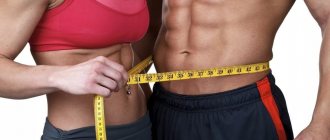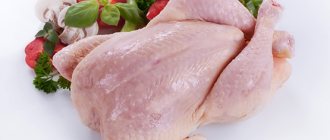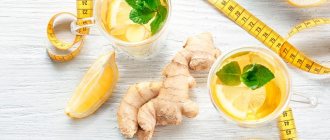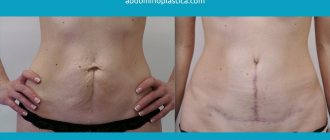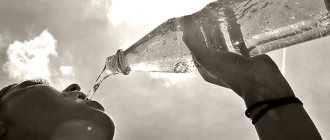Unloading after the New Year: real results and empty hopes
The New Year holidays, rich in feasts, radically change the diet: we eat a lot of sweet, fatty, spicy and incompatible foods.
The festive table is rich in fatty meat foods, sauces, potato dishes, and confectionery sweets - these are the age-old traditions of the main winter holiday. Hospitality, generosity and abundance are undoubtedly good for a pleasant time in the company of relatives and friends, but, alas, they often have sad consequences for the figure. The main danger of the New Year is that gatherings follow gatherings, heavy food provokes attacks of hunger, the schedule of sleep and rest is hopelessly shifted, and it is possible to wake up only on the verge of returning to everyday work. Unloading after the holidays is important, among other things, for its psychological effect: by turning to it, we seem to draw a line, put an imaginary, but decisive point in food excesses. Properly and timely “cleansing” measures really help the metabolism return to normal functioning, but just in case, don’t expect magic. If you were “lucky enough” to noticeably move the scales forward during the New Year holidays, it is unlikely that you will be able to get rid of everything at once in a day or even a week.
Fasting days after the New Year holidays will have little effect on newly acquired fat deposits, but will definitely help get rid of:
- excess fluid retained in the tissues (salty and spicy snacks, as well as simple carbohydrates that retain water, caused it to get stuck);
- residues in the lower intestines (an unbalanced diet with an excess of proteins and a lack of fresh plant and fermented milk foods often provokes their formation. As does a lack of movement, alas, characteristic of holiday leisure).
These substances can insidiously add from 2 to 5 kg to you! It is getting rid of water and leftover food that allows fasting days to give an encouraging effect in a short time. For some, this particular weight was excessive, while others will have to work on themselves in the coming new year. In any case, the main thing is to decide and start.
Choose the most effective fasting day that’s right for you, or create your own plan after finding out what foods your body especially needs after the holiday marathon. And be sure to assess the risks - fasting days are not recommended for those suffering from any chronic diseases, with exacerbation of ulcers and gastritis, with a tendency to allergies, and also if you are expecting a child or are breastfeeding.
Rules for unloading after the New Year holidays
- 1Don’t start unloading according to the “ship to ball” principle. A sudden change in eating style (hunger after a week of overeating) is a great tragedy for the body, which can behave unpredictably. Get ready for unloading by giving up fatty, sweet, salty foods and moderating portions at least a day or two in advance.
- 2Do not abuse the unloading effect. The optimal duration of strict “cleansing therapy” is 1 day, the maximum is 3 days. By staying on a minimal diet for longer, you risk developing a deficiency of vital nutrients, giving rise to muscular dystrophy and even getting dehydrated (even if you drink water instead of food - a puzzled body that does not receive a balanced diet will not be able to hold it). And what’s most offensive is that all these risks may have virtually no effect on your weight and appearance.
- 3Do not use chemicals and drugs that promote rapid weight loss: such drugs usually have more side effects and consequences than benefits, in addition, not all of them have been fully researched or even certified.
- 4Do not finish unloading immediately before going to work: even the calmest first working day after the New Year holidays becomes stressful, do not overload the body, give it at least one day off to recover after the “cleansing”. Of course, you shouldn’t overeat on this day off—use it to just relax, take a walk, and eat light, healthy food in small portions. Don’t forget that unloading after the holidays is needed not so much for losing what you’ve eaten, but for normalizing metabolic processes and a good dietary start in the new year.
How to stay hydrated
Don't forget about the importance of water - it also affects your metabolic rate, helping you lose weight. You need to drink at least 1.5 liters of fluid per day. You need to start your morning with non-carbonated mineral water - not with coffee or tea. You should also drink a glass half an hour before each meal - drinking regularly will help you quickly lose weight after the holidays.
Nutritionist's comment:
You cannot consume more than 300 grams at a time - distribute the volume evenly throughout the day. By maintaining the correct water balance, you help yourself avoid overeating - people often confuse hunger and thirst.
“Three happy days”: unloading plans
For those who expect a more serious result or simply do not believe in the effect of a one-day fasting, you can use a fasting nutrition plan designed for three days.
For the strong in spirit! “Water” express diet for 3 days
- Day 1, “entrance”: do not consume animal proteins and fats, as well as cereals. You can (4 times a day) - herbal tea, freshly squeezed juice, fruits, dried fruits, herbs, vegetables, nuts. The last meal is no later than seven in the evening. Be sure to drink water.
- Day 2, “water”: during the day - only water, about 3-4 liters (a glass every 40 minutes). You can drink the following drink 2 times a day: 1 glass of warm water, ½ teaspoon of honey and a spoon of lemon juice.
- Day 3, “day off”: in the morning - herbal tea, throughout the day grated fresh carrots with a dressing of honey and lemon juice or cabbage salad with carrots and lemon juice. The salad can be eaten until 7 pm daily without regard to volume. To drink a lot of water.
"Military Diet"
The new original fasting plan from the USA works thanks to calorie restriction. It is ideal for those for whom the usual unloading plans make them despondent due to the monotony of their diet. At the military camp, all drinks must be consumed without sugar and milk, and dishes must be consumed without salt and seasonings. You can and should drink water without restrictions, and in plenty.
- Day 1: breakfast - half a grapefruit, coffee or tea, 1 whole grain toast with a thin layer of peanut butter (can be replaced with urbech, almond paste or tahini). Lunch - ½ can of tuna in its own juice or a small grilled salmon steak, 1 whole grain toast, coffee or tea. Dinner - 100 grams of grilled chicken or beef, a portion of green beans, ½ banana, a small apple, a small glass of vanilla ice cream.
- Day 2: Breakfast - 1 boiled egg, 1 whole grain toast, ½ banana. Lunch - a small package of cottage cheese, 1 boiled egg, 5 small unsweetened crackers. Dinner - 100 grams of grilled chicken or beef, a portion of broccoli and some carrots (all steamed), ½ banana, half a glass of vanilla ice cream.
- Day 3: Breakfast - 5 small unsweetened crackers, 1 slice of hard cheese, 1 small apple. Lunch - 1 boiled egg, 1 toast. Dinner - 1 can of tuna in its own juice or a small grilled salmon steak, ½ banana, 1 cup of vanilla ice cream.
Nutrition rules after celebrations
During the January feasts, there is a tradition of eating the fattiest, unhealthy foods. These are smoked meats, pickled foods, an abundance of mayonnaise-based dressings, generously seasoned with spices. And this composition is completed with a few chocolates or a piece of cake with butter cream.
Each holiday meal is equivalent to 2 thousand calories. At the same time, the food that forms the basis of our table is characterized not only by high energy value, but also contributes to the retention of water in the body. The effect is also enhanced by alcohol.
Our additional services: Bioimpedance | Marutaka Massage | Pressotherapy | Ion-Detox
How not to gain weight during the New Year holidays - for many this question remains rhetorical. During the 2 weeks of winter holidays, when people visit each other every now and then and try different treats, body weight can change very significantly. The increase often ranges from 2 to 6 kilograms. But don’t be too scared, because not all of it is fat—a considerable part of what comes in comes from swelling. Getting back into good shape won't be a very difficult task if you don't continue to overeat, but find the strength to ration your portions and fill your plate with the right foods.
Nutritionist's comment:
To prevent the body from trying to make reserves, follow the main principles of a healthy lifestyle: get enough sleep, eat consciously, counting calories, do not abuse alcohol and move.
Before you go on a visit or receive dear people, tune in to the following rules:
- maintain a sleep schedule, due to its lack, hormonal levels change, which affects appetite and metabolic processes;
- replace high-calorie salad ingredients with low-calorie analogues - use sour cream instead of mayonnaise, boiled lean meat instead of sausage;
- when preparing complex dishes, refrain from an unplanned slice of baguette or an ugly cut piece of cheese; such snacks only seem harmless, in fact they often reach 200-300 calories;
- if you really want to eat while preparing the table, make sure you have peeled carrots or celery, which you can crunch appetizingly to satisfy your hunger;
- do not sit down to celebrate hungry, try to keep a clear mind, eat in moderation;
- at a restaurant, place your order first, do not be guided by the gastronomic preferences of your friends (the desire to order the same thing as other guests often serves as an insidious trap and contributes to the accumulation of excess calories);
- do not set yourself the task of trying all the dishes that are on the table; if, in your opinion, the salad will not bring pleasure and benefit, it is better to refuse it, you will not lose anything;
- eat slowly - the signal of satiety reaches the brain only 20 minutes after the start of the meal, it makes sense to “go slower”, this will allow you to feel full with less food eaten.
If gastronomic excesses could not be avoided, after the end of the holidays, immediately change your diet and resume the correct diet. Follow these principles: eat little and often - at least 5-6 times a day;
- do not allow long breaks between meals;
- choose foods consciously, plan your day, resolutely refuse random treats (candy from a colleague, a sandwich from your parents);
- the calorie content of dishes should decrease as the day progresses - porridge, fruits (especially bananas, grapes), dried fruits, bread, honey, butter are consumed in the first half, in the evening you can have low-fat
- kefir, boiled meat, vegetables, steamed omelet, cottage cheese;
- breakfast, not dinner, should again become the largest meal of the day - ideally it accounts for 25% of everything eaten for the whole day;
- a minimum of salt - it interferes with eliminating swelling and looking fit, and also helps increase appetite.
Grain unloading after the holidays: chicken grain by grain...
Unloading on porridge is liked by those for whom fruit does not cause a feeling of fullness in the stomach, but only provokes stronger hunger.
It's all about the individual characteristics of metabolism. Any cereal for a fasting day is prepared and consumed without salt, oil or other additives. Rice cleansing
A fasting day on rice is recommended by many nutrition experts - this product is easy to purchase and prepare, in addition, it has enterosorbent properties, literally absorbing toxins. Of all the types of rice diets for rice cleansing, choose brown rice, it is the most healthy.
To carry out unloading on rice, soak 250 grams of rice overnight, and in the morning drain the water, pour boiling water over the cereal and cook until tender.
Divide the resulting amount into 6 meals at equal intervals. Once you can add a few pieces of finely chopped dried apricots to the rice. Drink still, clean water all day. Unloading on buckwheat and kefir
For a fasting day on buckwheat and kefir, steam 250 grams of washed buckwheat with two glasses of boiling water overnight (in a thermal container or tightly sealed pan. Divide the resulting porridge into 5 meals, alternating them with still mineral water (2 liters per day ) and kefir (500 ml). Unloading after the holidays is guaranteed!
Can weight go away on its own?
It would seem, why limit yourself to food and increase the amount of exercise if the “holiday” kilograms were gained due to an exceptional situation? It will go away on its own! In fact, the body will not be able to return to its previous state so easily, even if you restore your usual diet.
Photo: istockphoto.com
Andrey:
There are chances that a couple of extra pounds will “stick.” Why is this happening? Before the holidays, the body kept its weight unchanged because the person adhered to a certain usual diet. During the holidays, a person gains 1-2 kg, and the body subsequently begins to “carry” them on itself. He simply does not perceive them negatively. For him, these kilograms are a reserve for a rainy day, in case of famine. Therefore, you will have to make an effort to get back into shape.
Daily Minimum: How to Walk 10,000 Steps Every Day
How to get rid of “holiday” kilograms?
The nutritionist identifies two main ways to lose weight after the holidays:
- reduce your usual diet;
- increase physical activity.
Photo: istockphoto.com
Andrey:
I advocate a mixed approach with a tilt towards increasing physical activity. Adding physical activity is not as difficult as it seems. If you walk 5-6 thousand steps a day, try walking 12 thousand steps within two weeks. Park your car further than usual, get off the tram two stops earlier, go for a walk in the evening.
Microelements that will help you lose weight after a holiday binge
Potassium
We learned about the benefits of potassium in food and the dangers of its deficiency only a few decades ago. The emergence of interest in the importance of this element in everyday nutrition was facilitated by the spread of fast food and semi-finished products, “famous” for their high content of sodium chloride (table salt), and the popularity of strict diets. A poor diet, as well as increased consumption of coffee, alcoholic beverages and confectionery sweets, directly and clearly affect potassium deficiency. A lack of potassium causes muscle pain and severe weakness, but most importantly, it provokes the development of diseases of the cardiovascular system.
At a post-holiday unloading party, potassium is an invited guest: products containing it help remove excess salt and fluid, allowing you to change for the better literally before your eyes.
Potassium reduces swelling, normalizes the activity of internal secretion organs, and improves brain function. Foods containing a lot of potassium: carrots, tomatoes, oatmeal, bananas, honey, apple cider vinegar, dried fruits, nuts. Magnesium and magnesium
Magnesium is the “satellite planet” of potassium. Many processes in the body are their joint projects, for example, potassium is necessary for muscle contractions, and magnesium is necessary for muscle relaxation. Magnesium in food products, as a rule, “works in tandem” with potassium, but magnesium also has its own specific properties that your fasting after the holidays will appreciate.
Magnesium is necessary for the transport of nutrients, the normal functioning of the nervous system, the metabolism of fats and glucose, and the reduction of “bad” cholesterol. It is a powerful detoxifier and fighter against stress and fatigue. A lack of magnesium can result in the inability to sleep even with a strong feeling of fatigue, and stress and alcohol consumption contribute to its consumption and removal from the body. The unpleasant consequences of the New Year's break are partially due to a lack of magnesium. To replenish its reserves, eat whole grains, pumpkin and pumpkin seeds, buckwheat, seaweed, nuts (especially pine nuts), and beans.
When fighting a hangover and other consequences of alcohol detoxification, Epsom salts and magnesium (pharmaceutical magnesium sulfate) can be a good help.
If your therapist has not found any contraindications to taking magnesia, it will not only cope with a throbbing headache, but will also reduce the load on the liver and have an antidepressant effect. In addition, magnesium in moderate doses has a mild laxative effect, which can be very useful if you need to unload after the holidays. Zinc, selenium
These microelements are magical antioxidants, like air, necessary for women. During the period when you need relief after the holidays, they become a truly indispensable help.
Selenium, whose very name recalls the Moon, the patroness of the fair sex, is necessary for the protection of fragile cell membranes and the production of new red blood cells, as well as protection against the effects of adverse external conditions and the prevention of premature aging.
Zinc maintains the immune system in good working order and also helps tissues properly absorb glucose and lipids. Chronic fatigue, blurred vision, dull skin and hair, and lack of interest in love life can be corrected by controlling the supply of these important microelements. Unloading after the New Year holidays will become even more effective if you add foods rich in selenium and zinc to the menu: sprouted grains, shrimp, oysters, offal of animals and birds, hard cheeses, milk. Vitamin C Vitamin
C, which is vital for any person, is usually associated with the cheerful orange color - probably because citrus fruits are especially high in it. Unloading after the holidays really requires vitamin C: it improves mood and well-being, increases performance, is effective against drowsiness and weakness, and also helps the body absorb iron, which is important for hematopoiesis and the prevention of anemia. This vitamin is recognized as one of the most powerful fighters against oxidative processes.
Anyone who cares about beauty knows that adequate intake of vitamin C helps not only to feel a surge of energy, but also to make the complexion healthier and more attractive.
It is believed that a lack of vitamin C not only leads to lethargy and a feeling of loss of energy, but also impairs immunity and inhibits thyroid function. It is important to remember that vitamin C contained in food is easily destroyed when exposed to light, oxygen and heat treatment. Therefore, you need to get it from fresh products: berries (especially rose hips), oranges, tangerines, kiwis, pineapples, apples, parsley, broccoli and Brussels sprouts, bell peppers. Foods that lower cortisol levels
Cortisol is a hormone produced by the adrenal glands that is actively involved in carbohydrate metabolism. Moreover, participation is not always pleasant: an increase in cortisol levels not only gives the body the command “let everyone in, don’t let anyone out” and accumulate glycogen in the liver and fat on the hips, but also increases uncontrollable cravings for sweet and salty foods. Cortisol is called the “stress hormone”: its goal is to save the body’s resources with all its might at the slightest sign of mental and physical stress and “fill the pantries” with new supplies.
The production of cortisol itself is a normal part of the general background: if this hormone is produced in moderation, then there is nothing to worry about. However, poor quality and short night sleep, alternating periods of hunger and overeating, physical overload, emotional experiences (in short, a significant part of the signs of the New Year holidays) provoke a sharp increase in its production. That is why foods that normalize cortisol production are a mandatory part of the post-holiday deload plan. These include: protein foods (especially sea fish with its valuable unsaturated acids), foods rich in vitamin C, dark chocolate, black tea, spinach. And don’t forget to laugh and take deep breaths - this also helps bring down cortisol arrogance.
